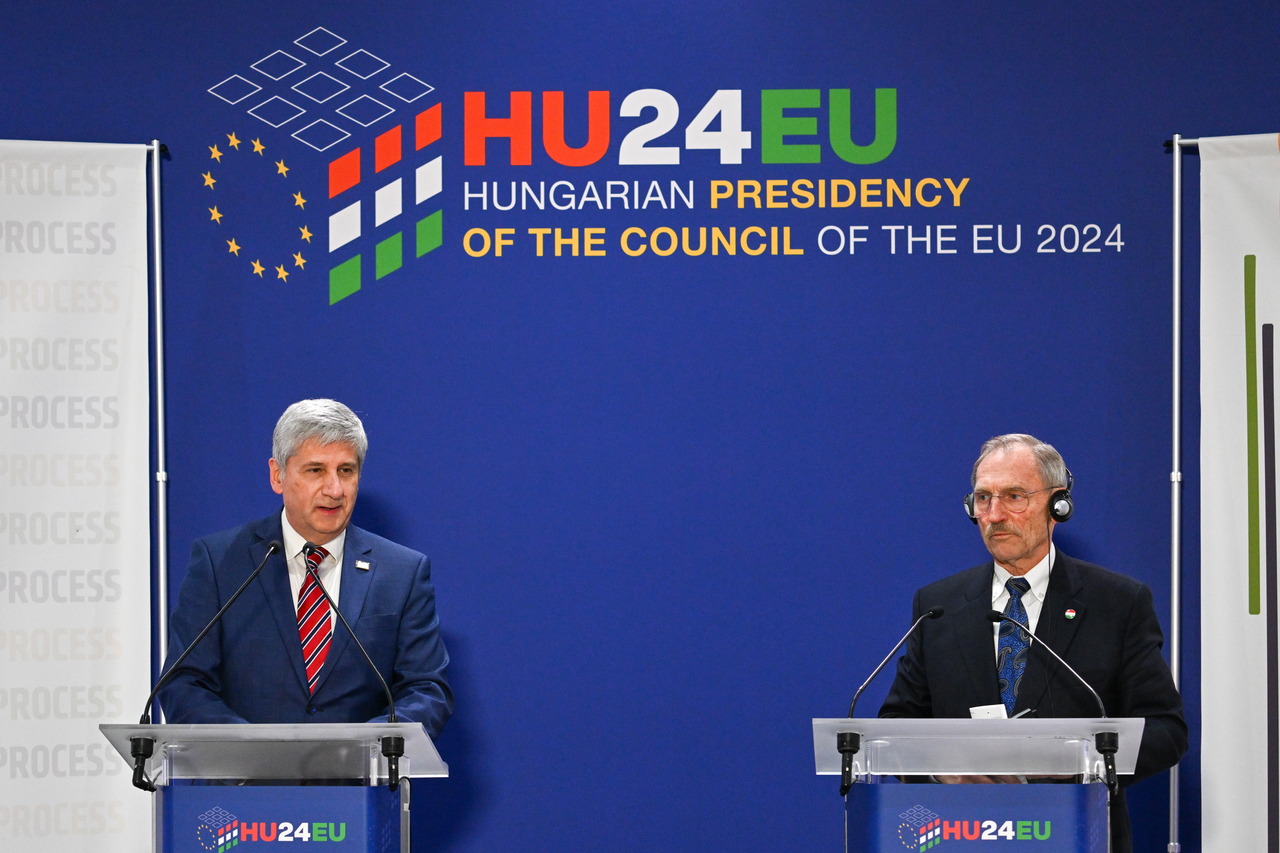The essence of the Budapest Process is cooperation on the issue of migration and dialogue, Interior Minister Sándor Pintér said after the 7th Ministerial Conference of the Budapest Process on Tuesday.
It has taken the ministers involved a year of work to approve a joint declaration and adopt an action plan, Pintér told a press conference.

The aim of the action plan is to map out the steps that need to be taken at the border and in caring for refugees, the minister said.
He said the overall issue of migration included illegal migration, people smuggling and legal migration that can support the economy.
Tuesday’s conference was attended by representatives from some 50 countries and seven international organisations, Pintér said. The Turkish chairmanship of the Budapest Process has led to its expansion to the Silk Routes region, he said, noting that there are now more than 50 countries involved in the dialogue on illegal migration.
As regards the priorities, Pintér highlighted cooperation in the fight against illegal migration and people smuggling and cooperation in ensuring mobility so that the EU and Silk Routes region economies can grow and provide labour to the countries that need it.
Michael Spindelegger, Director General of the International Centre for Migration Policy Development (ICMPD) said the joint declaration was an assessment of today’s migration trends, while the action plan applied to the next five years. He said it was important to be prepared for migration waves, and cooperation was a good way to handle the challenge.
Read also: